UC ANR Agricultural Application Engineering Program Supports local STEM Educators to Enrich K-12 classroom STEM Instruction
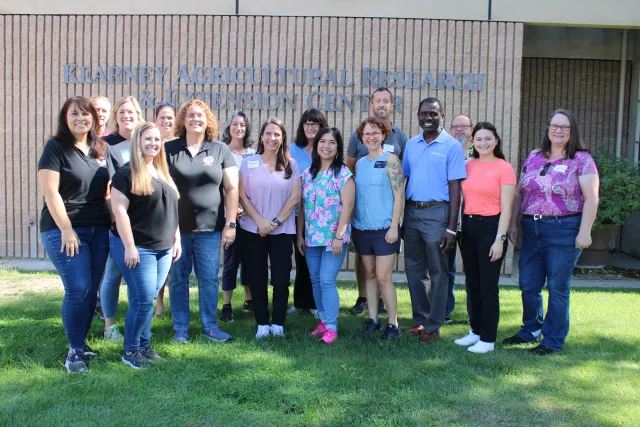
The Issue
Educators strengthen the impact of K-12 science, technology, engineering, mathematics (STEM) education by using real-world examples that hit home to concepts and applications familiar to students. Research indicates that exposing students much earlier to STEM education provides a longer-term opportunity for them to explore and participate in high-impact learning experiences (Parrella et al., 2023) that will help them to develop employable skills needed in STEM careers. In addition to exposing students to STEM pathways through field visits and hands-on experiences, the appreciation of classroom STEM instruction can be enriched by developing and utilizing content that establishes relevance in real-world applications. To that end, a grant project aimed to pair local scientists and researchers in the San Joaquin Valley working on agricultural-related environmental challenges with small groups of science teachers across Fresno County. The scientists share with the selected group of teachers what they are working on: what problem they are addressing and how they are addressing it, the kind of data they are collecting, and what they have learned so far. The teachers decipher how that real-world problem or solution could support their students' learning in the classroom. Teachers create lessons and activities around the scientists’ work, which will be ultimately shared with teachers across the state.
How UC Delivers
In October of 2024, UCCE specialist Dr. Peter Ako Larbi collaborated with the Office of the Fresno County Superintendent of Schools to deliver a STEM educator workshop and gave a tour at the Kearney Agricultural Research and Extension (KARE) Center. The three-hour engagement started with a Welcome and Introduction by Mrs. Lesley Gates, Science Content Specialist with the Fresno County Superintendent of Schools. This was followed by a presentation by Dr. Larbi on “Pesticide Spray Application and the Issue of Drift,” which covered the need for and use of pesticides in crop protection, the fundamentals and outcomes of pesticide spray application, and ongoing research and extension efforts at his Agricultural Application Engineering (AgAppE) Lab that promotes environmentally sustainable outcomes.
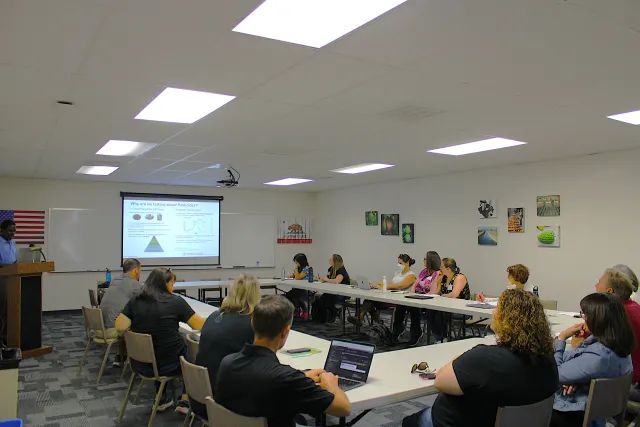
Dr. Larbi then went with the group on a tour of selected research facilities at the KARE Center. Riding on a tram and driving by research fields, the tour included green houses, the entomology lab, and Dr. Larbi’s AgAppE Lab. Overviews of each facility and research done there were provided by: staff research associate (SRA) Ryan Puckett – green house; postdoc Lars Laber - Houston Wilson entomology lab; and Dr. Larbi’s SRAs Geoffrey Shimotsu and Christian Becerra – AgAppE Lab. The participants got the chance to ask as many questions as possible at each stop of the tour. Support for the tour was also provided by other KARE Center personnel. Dr. Larbi’s lab assistant Tiffany Quiroz provided logistical and documentation assistance for the entire event.
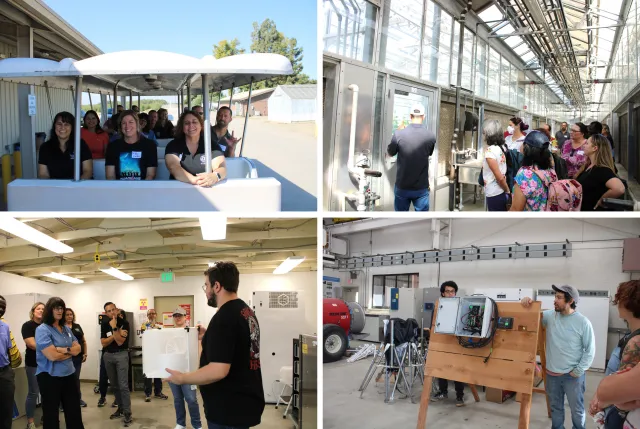
The event ended with a question-and-answer session where Dr. Larbi responded to participants’ questions on his presentation and follow-up questions about the tour. Other general questions led to interesting discussions around the topic of pesticide application and the environment.
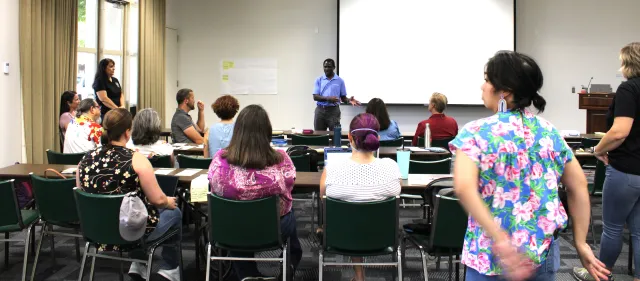
The Impact
Fifteen STEM educators participated in the event. The group consisted of science, math, and computer science teacher leaders. The participants expressed great interest and were fully engaged throughout the event. An online survey was sent to all participants to obtain feedback on the event. The amount of learning gained by the participants was categorized on the survey as “None at all”, “A little”, “A moderate amount”, “A lot”, and “A great deal”. More than half (53%) provided feedback on their learning. A summary evaluation results by section is shown in the graphic below. The results indicate that 100% of the respondents acquired “a moderate amount” to “a great deal” of learning from the entire event, indicating an effective professional development opportunity for STEM teachers.
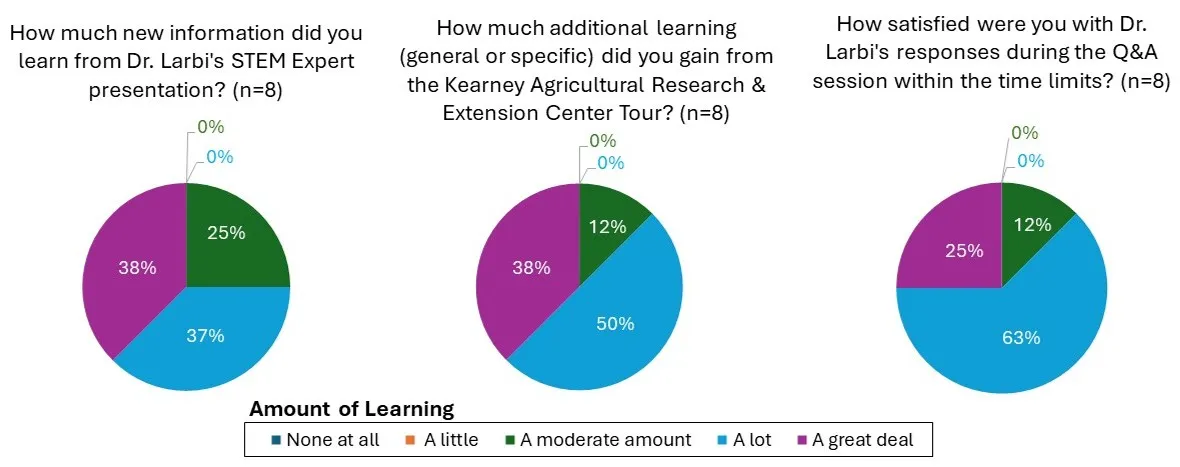
Additional written comments were mostly positive with examples as follow.
“Dr. Larbi did a great job of sharing his wide scope of research in a short amount of time in a way that we were able to understand! We appreciated the tour, especially of his 'workshop.' Meeting his support staff and learning that they have computer science and environmental science backgrounds was perfect for our learning as we were trying to see how math, science, and computer science are integrated in the ‘real world’.”
“It was very informative to learn about the center and the work that supports agriculture in our state. I appreciate hearing about how researchers are looking for ways to help growers do less harm to the environment. I also appreciated hearing from a variety of folks and their perspective.”
Another participant suggested that:
“I think maybe some explicit discussion of how (science) teachers can continue to prepare students so that they can enter into the work with some sense of skills (varied and multiple) required to conduct such complex and robust science investigations.”
A major goal of this workshop and tour was to create instructional content that will get students to appreciate that science is happening all around them, not just in textbooks. The San Joaquin Valley is the most productive agricultural area in the world with a great amount of scientific research and technological innovation happening at any point in time, and yet students can miss these opportunities in terms of career options. After the workshop, the educators spent two additional hours using their content-specific lenses to collaboratively create related activities and lessons that would potentially be used in K-12 classroom instruction. Research has shown that creating such awareness for students who are going to be the innovators of tomorrow will help them better navigate their career interests (Parrella et al., 2023).
